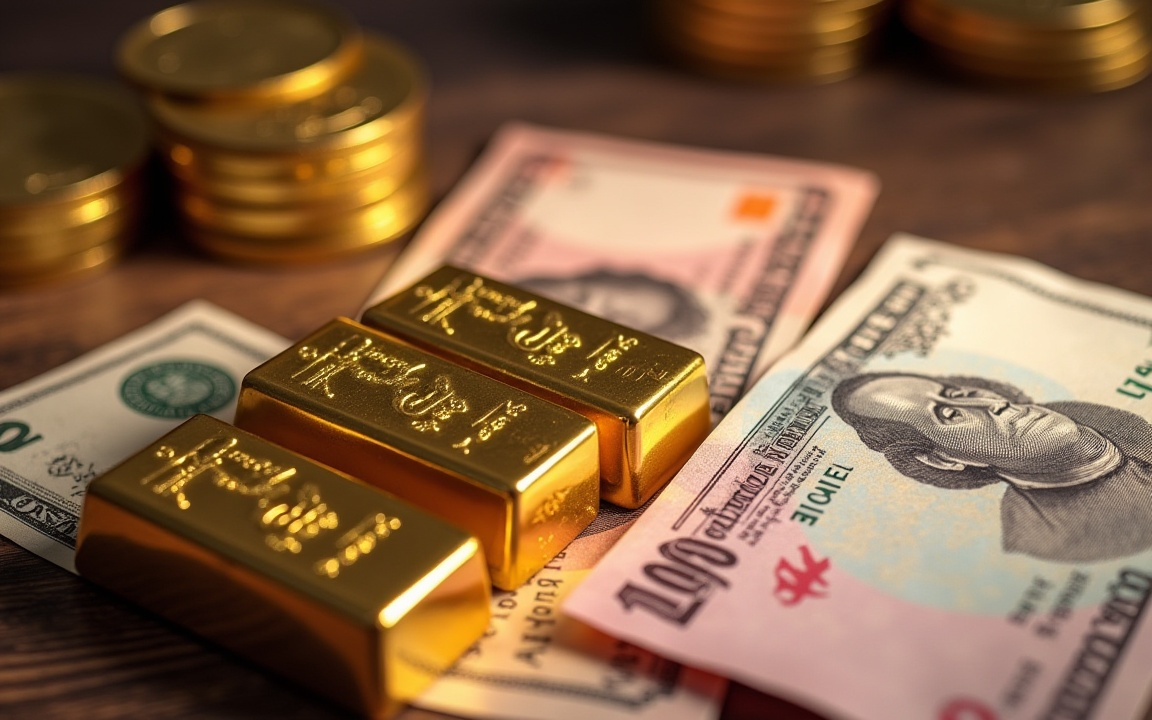Russia’s central bank announced Wednesday that its engagement with the domestic gold market—both buying and selling for the National Wealth Fund (NWF)—has been on the rise, citing the yellow metal’s growing liquidity.
The central bank of Russia has seen a substantial portion of its foreign exchange reserves, held in key Western currencies such as the US dollar and the euro, immobilised.
Impact of sanctions
This unprecedented financial action is a direct consequence of sweeping sanctions implemented by Western nations—including the US, the European Union, and the UK—in response to Russia’s unprovoked military invasion and ongoing actions in Ukraine.
This freezing of assets effectively targets Russia’s ability to utilise a significant war chest of its foreign reserves, which were meticulously accumulated to stabilise the national currency, the ruble, and insulate the economy from external shocks.
The measure prevents the Russian central bank from accessing these funds to intervene in currency markets, make payments, or finance its operations, representing a major escalation in the financial warfare waged against the Kremlin.
The exact value of the frozen assets runs into hundreds of billions of dollars, and their immobilisation is designed to place extreme pressure on the Russian financial system and economy.
Strategic pivot to yuan and gold
Russia significantly altered the composition of its fiscal reserves in 2023, completely removing the US dollar, the euro, and other Western currencies.
This strategic move was a response to geopolitical tensions and sanctions, aimed at de-dollarisation and reducing reliance on the financial systems of perceived adversaries.
The new structure of the reserves now exclusively favours the Chinese yuan and gold.
The target allocation is explicitly set, with 60% of the reserves dedicated to the yuan, reflecting the growing economic partnership with China, and the remaining 40% allocated to gold, a historically reliable and politically neutral store of value.
This change underscores Russia’s pivot toward non-Western financial assets.
“Yuan and gold are liquid assets of the NWF. The purchase or sale of liquid currency assets of the NWF for roubles entails the central bank conducting equivalent volume operations in the domestic market,” the Russian central bank quoted as saying in a Reuters report.
The central bank has been able to increase its gold transactions due to the rise in domestic gold turnover, which itself was spurred by a rally in global gold prices.
However, the bank did not disclose when this increase in transaction volume took effect.
Gold market liquidity
Despite being the world’s second-largest gold producer after China, Russia’s central bank has been restricted in its ability to increase its gold reserves.
This is due to a combination of international sanctions preventing it from buying gold on international markets and the low liquidity of the domestic market, which previously limited the scope of its domestic operations.
The central bank said:
Since the liquidity of the domestic gold market has increased in recent years, the central bank conducts equivalent operations not only through the purchase and sale of yuan for roubles but also partially through the purchase and sale of gold.
The NWF held $51.6 billion in liquid assets—specifically yuan and gold—as of November 1.
This sum is equivalent to 1.9% of the anticipated gross domestic product (GDP) and is available for addressing the budget deficit.
The central bank manages the NWF gold and foreign currency transactions.
The NWF is financed by excess oil revenue, which is converted from roubles in the state budget.
Throughout 2025, the NWF has been a net seller of foreign exchange and gold.
The NWF’s holdings of foreign currency and gold are incorporated into the central bank’s gold and foreign exchange reserves.
These reserves totalled nearly $720 billion, which includes the frozen assets, and gold constituted over 41% of the total.
The post Kremlin increases domestic gold engagement for national fund appeared first on Invezz

